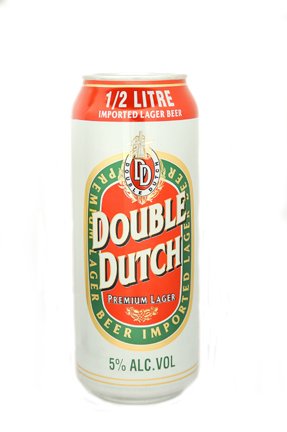Sunday, March 23, 2008
Double Dutch: Dutch lessons for buitenlanders. Les 1

I will write in English. I'm not saying that the new official language is English, because it isn't, but that I'm just going to write in English.
As a first lesson I will only give you an introduction on its history, because can give a hint of what you may face if you want to learn Dutch…
Dutch is a germanic language spoken by around 24 million people. Which is not that bad. The trick is that these people are mainly only in the Netherlands, Belgium or Suriname. You can still find some Dutch speaking person somewhere in the ex colonies. If you can speak Dutch, you can probably understand and being understood by people of South Africa or Namibia, where the Afrikaans is spoken. The majority of the dialect spoken in Belgium are referred as Flemish, and this term is often used in contradistinction to Hollander. This contradistinction has been very important for a while regarding the orthograph…
You may think that the Dutch pronunciation is difficult... but that's only because you have no clue how to spell the words. Because in fact, the spelling is more difficult then the pronunciation. The main reason for that is that once you know the pronunciation rules, you can read practically everything. On the other hand, there is no a unique way to spell a single sound, but you can write in different ways the same pronounced sound.
It was only with the strenght of the revolutionary ideas of the French Revolutions that, while all the other countries were fighting for thei freedom, in the Netherlands Matthijs Siegenbeek, a professor at Leiden was officially asked in 1801 to draw up a uniform spelling. It's thanks to this smart one that now we are stucked with the ij (called lange ij (long y) as distinct from the identically pronounced ei, called korte ei (short ei)). Maybe is because of this that Siegenbeek's spelling never achieved real popularity. In particular the poet Willem Bilderdijk fought against it, largely out of personal spite.
After a while, they decided that writing a dictionary may have been a nice idea (the first Italian Dictionary has been published in 1612), but they couldn't really find a uniform decision about the spelling. In 1863 Te Winkel managed to find a new spelling, and published the results in De grondbeginselen der Nederlandsche spelling. Ontwerp der spelling voor het aanstaande Nederlandsch Woordenboek (The foundations of Dutch spelling. Project for the spelling of the forthcoming Dutch Dictionary). You can say everything, but not that the Dutch are not optimists…
Nevertheless, there was not much satisfaction, and in 1891 R.A. Kollewijn produced an article Onze lastige spelling. Een voorstel tot vereenvoudiging (Our awkward spelling: a proposal for simplification). In 1916 a Dutch commission looked into the possibility of a compromise. This gradually led to adaptations: on 1 September 1934 the minister for Education, Marchant, accepted most of Kollewijn’s proposals. But at that point the Netherlands and Belgium had still a different spelling, so a Flemish-Dutch committee compiled a vocabulary which was published in 1954 in a green volume entitled “Woordenlijst van de Nederlandse taal” (Vocabulary of the Dutch language), which became known as “het Groene Boekje” (the Green Booklet).
In the 1980 the Nederlandse Taalunie has been formed and in the 1994 issued a new spelling decree. They also decided that the spelling should be revised every ten years (???), so the 15th October 2005 this revision has been applied and new spelling rules decided.
My main goal will be in few years from now to convince the Dutch to spell the Dutch with Italian rules....
Subscribe to:
Post Comments (Atom)






3 comments:
so let's start to pour some indispensable vowels at the end of the words.
Starting from this "Dutch" word that from now on will be spelled with an very Italian ( = italianissimo) "Daccio".
Mi raccomando, andate a votare!! Io l'ho gia' fatto, e nel Collegio Estero ci sono pure le preferenze!
Si certo, non preoccuparti qualcosa faremo... anche se la situazione non è certo rosea. E cmq... chi sei????
Post a Comment